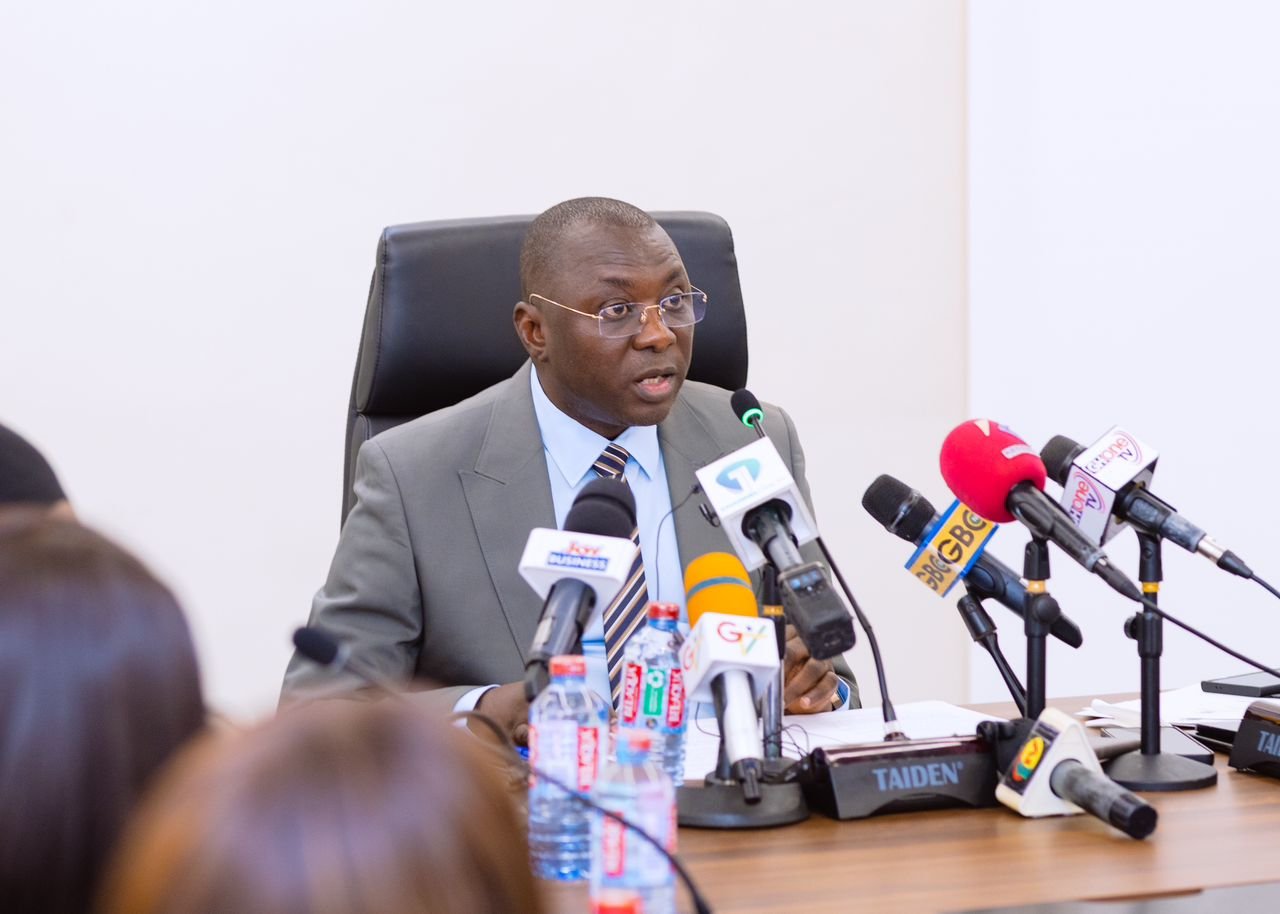News
Ghana’s debt hits GH¢761bn, Amin Adam blames Cedi depreciation

The Minister of Finance Dr.Amin Adam has disclosed that as of July 31, 2024, Ghana’s provisional nominal central government debt stood at GH¢761.1 billion.
According to him, to the minister, this is equivalent to US$51.1 billion.
The minister made these revelations during the monthly Economic Update at the Finance Ministry in Accra on Thursday.
This figure marks a nominal increase from the previous amount of GH¢587.7 billion, which was equivalent to US$53.5 billion.
He explained that the increase in cedi terms and the decrease in US dollar terms are largely attributed to the depreciation of the cedi.
“As of July 31, 2024, Ghana’s provisional nominal central government debt stood at GH¢761.1 billion, equivalent to US$51.1 billion. This represents a nominal increase from the previous amount of GH¢587.7 billion, equivalent to US$53.5 billion,” he noted.
He concluded by adding that “The increase in cedi terms and decrease in US dollar terms is attributed to a combination of factors, including cedi depreciation, disbursements from multilateral institutions, and domestic financing of the budget.”
By Edem Mensah-Tsotorme
News
President John Dramani Mahama to kick off 2025/26 Premier League season in Accra

The 2025/26 Premier League will officially kick off on Friday, September 12, 2025, at the Accra Sports Stadium, with the President of the Republic, John Dramani Mahama, performing the ceremonial kick-off ahead of the season opener between Accra Hearts of Oak and league debutants Hohoe United.
President Mahama will be joined by Football Association President Kurt Edwin Simeon-Okraku, members of the Executive Council and football fans from across the capital as the curtain rises on what promises to be one of the most exciting campaigns in recent years.
Giants Hearts of Oak will open their quest for a league title when they take on newly promoted Hohoe United under the floodlights of the Accra Sports Stadium. Kick-off is scheduled for 7:00 pm local time (19:00 GMT).
The Phobians, bolstered by new signings and a strong pre-season campaign, are eager to end a four-year run without an opening-day victory, while United will be aiming to make a statement in their first-ever top-flight match.
Before the main fixture, there will be a curtain-raiser between the Black Starlets (Ghana U-17) and Auroras FC, the youth side of Hearts of Oak, at 4:00 pm local time.
Adding to the celebratory atmosphere, top Afro-dancehall and reggae musician Stonebwoy (Livingstone Etse Satekla) will deliver a live performance at the venue, ensuring fans enjoy not only football but also top-class entertainment on opening night.
This season is expected to be one of the most competitive in recent memory, with traditional heavyweights, ambitious newcomers and revitalized clubs all targeting glory. From title races to survival battles, fans are set for months of excitement, drama and unforgettable moments.
News
GES opens promotion applications for teaching staff

The Ghana Education Service (GES) has invited applications from qualified teachers and officers for promotion to higher ranks within the service.
In a notice signed by the Acting Deputy Director-General for Management Services, Prof. Smile Dzisi, the GES said the ranks available are Deputy Director, Assistant Director I, Assistant Director II and Principal Superintendent.
According to the statement, applicants must meet the minimum years of service required for each position.
Teachers seeking promotion to Deputy Director must have been promoted to Assistant Director I in or before 2021.
Similarly, those applying for Assistant Director I should have held the rank of Assistant Director II since 2021 or earlier.
Applicants for Assistant Director II must have been Principal Superintendents from 2021 or earlier, while those applying for Principal Superintendent must have been Senior Superintendent I since 2021 or before.
The GES stated that teachers with approved Master’s or PhD degrees may use their certificates to apply for promotion out of turn if the qualifications meet set conditions.
These include completing an approved course of study and obtaining the certificate after their previous promotion but not later than 2023.
Applicants are to complete the online application form and upload all required documents in PDF format, except for the passport-size photograph.
The application window runs from Thursday, September 11, to Thursday, October 2, 2025. The GES urged all applicants who had applied earlier to re-apply.
By: Jacob Aggrey














